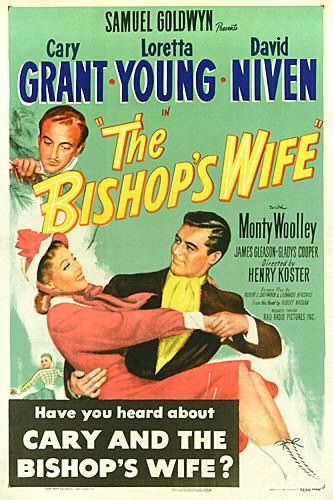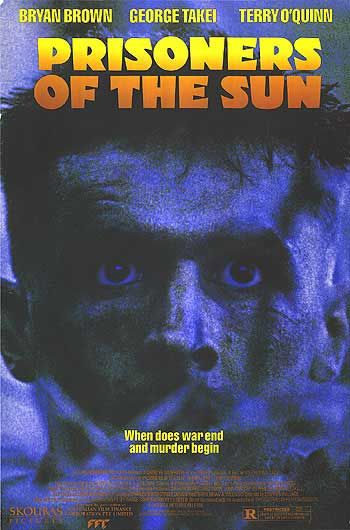
| None | Light | Moderate | Heavy | |
|---|---|---|---|---|
| Language | ||||
| Violence | ||||
| Sex | ||||
| Nudity |
What You Need To Know:
In WWII, the Japanese seized Ambon Island, capturing 1,100 Australian troops. At WWII’s end, only 300 prisoners survived. As the PRISONERS OF THE SUN opens, Australian troops re-capture Ambon and uncover mass graves of mutilated prisoners. Unfortunately, all trial witnesses are seriously ill, or dead. Vice-Admiral Takahashi is acquitted. POW camp manager, Captain Ikeuchi is incriminated by a POW victim, who dies before cross-examination. Lieutenant Hideo Tanaka, a Christian, surrenders to the Australians to expedite justice. We learn that he complained about the inhumane treatment of POWs to his supervisors. To silence his complaints, Tanaka was forced to execute four Australian fliers. Tanaka testifies that Captain Ikeuchi was a vicious murderer, and that Vice-Admiral Takahashi gave orders to mistreat the POWs. Unfortunately, Ikeuchi commits suicide and Takahashi is long gone, leaving Tanaka to pay for their crimes. Tanaka faces a firing squad at peace with God about his eternal destiny.
Overall, PRISONER is well-written, acted and directed. The film respects Tanaka’s Christian faith and presents a powerful insight into biblical morality, although one must be thick-skinned to watch Tanaka being executed.
Content:
(L, VV) A few obscenities, brief but intense prison camp violence, a decapitation, hari-kari, and a firing squad.
More Detail:
PRISONERS OF THE SUN is the WWII tale of a Christian-Japanese lieutenant/signal officer who is executed by an Australian firing squad after being convicted of war crimes.
Early in World War II, Japanese troops seized the tiny Ambon Island near Indonesia, capturing over 1,100 Australian troops and placing them in concentration camps. At WWII’s end, only 300 prisoners survived months of starvation, beatings and mass executions.
As the film opens, Australian troops re-capturing Ambon uncover mass graves of mutilated prisoners while chief prosecutor Captain Robert Cooper gets ready to punish the Japanese who are responsible. First on his list is Vice-Admiral Baron Takahashi, followed by the surly concentration camp manager, Captain Ikeuchi.
Unfortunately, all trial witnesses are seriously ill, dying, or already dead. Circumstantial evidence is inadmissible, and Japanese soldiers are tight-lipped when it comes to betraying their officers.
Takahashi is aptly defended by an earnest Japanese attorney, and ultimately acquitted. Captain Ikeuchi is incriminated by one of his fellow POW victims who dies before cross-examination. Since Western principles of law must be upheld, the case against him may not stand.
Enter Lieutenant Hideo Tanaka, a signal officer in the camp who is also a devout Christian. Tanaka has voluntarily surrendered to the Australian authorities in hopes of expediting justice.
Through Tanaka’s testimony, we learn that he repeatedly complained about the inhumane treatment of POWs to his supervisors. In order to silence his complaints, Tanaka was forced to participate in the execution of four Australian fliers. He was told that these men were court-martialed for bombing civilians, and that sentence could only be carried out by officers of equal rank.
As Tanaka experiences intense flashbacks, viewers learn that he also participated in ceremonial beheadings. What viewers do not know is the nature of Tanaka’s heart at the time of the executions. Did he believe that the airmen were guilty of a capital crime? Was he afraid of being killed if he didn’t comply? If so, why isn’t he afraid now, as he confesses to his captors?
Tanaka testifies that Captain Ikeuchi was a vicious murderer, and that Vice-Admiral Takahashi gave orders to mistreat the POWs. Unfortunately, Ikeuchi commits suicide and Takahashi is long gone, leaving Tanaka to pay for their crimes. Coming to terms with his past actions, Tanaka faces a firing squad at peace with God about his eternal destiny.
Overall, PRISONER is well written, ably acted and skillfully directed. The film respects Tanaka’s Christian faith and presents a powerful insight into biblical morality, although one must be thick-skinned to watch Tanaka being executed.
Early in World War II, Japanese troops seized the tiny Ambon Island near Indonesia, capturing over 1,100 Australian troops and placing them in concentration camps. At WWII’s end, only 300 prisoners survived months of starvation, beatings and mass executions.
As the film opens, Australian troops re-capturing Ambon uncover mass graves of mutilated prisoners while chief prosecutor Captain Robert Cooper gets ready to punish the Japanese who are responsible. First on his list is Vice-Admiral Baron Takahashi, followed by the surly concentration camp manager, Captain Ikeuchi.
Unfortunately, all trial witnesses are seriously ill, dying, or already dead. Circumstantial evidence is inadmissible, and Japanese soldiers are tight-lipped when it comes to betraying their officers.
Takahashi is aptly defended by an earnest Japanese attorney, and ultimately acquitted. Captain Ikeuchi is incriminated by one of his fellow POW victims who dies before cross-examination. Since Western principles of law must be upheld, the case against him may not stand.
Enter Lieutenant Hideo Tanaka, a signal officer in the camp who is also a devout Christian. Tanaka has voluntarily surrendered to the Australian authorities in hopes of expediting justice.
Through Tanaka’s testimony, we learn that he repeatedly complained about the inhumane treatment of POWs to his supervisors. In order to silence his complaints, Tanaka was forced to participate in the execution of four Australian fliers. He was told that these men were court-martialed for bombing civilians, and that sentence could only be carried out by officers of equal rank.
As Tanaka experiences intense flashbacks, viewers learn that he also participated in ceremonial beheadings. What viewers do not know is the nature of Tanaka’s heart at the time of the executions. Did he believe that the airmen were guilty of a capital crime? Was he afraid of being killed if he didn’t comply? If so, why isn’t he afraid now, as he confesses to his captors?
Tanaka testifies that Captain Ikeuchi was a vicious murderer, and that Vice-Admiral Takahashi gave orders to mistreat the POWs. Unfortunately, Ikeuchi commits suicide and Takahashi is long gone, leaving Tanaka to pay for their crimes. Coming to terms with his past actions, Tanaka faces a firing squad at peace with God about his eternal destiny.
Overall, PRISONER is well written, ably acted and skillfully directed. The film respects Tanaka’s Christian faith and presents a powerful insight into biblical morality, although one must be thick-skinned to watch Tanaka being executed.


 - Content:
- Content: 

